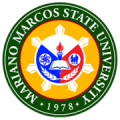.jpg)
Microbiologists address measles outbreak issue
An official of the Philippine Society for Microbiology (PSM), Inc. attributed microbial infections, such as the measles outbreak among children, to the adverse effects of climate change.
“The measles outbreak, which we are battling right now, the emerging microbial pathogens, and antimicrobial resistance are the consequences of this changing world climate and an increasing global mobility that should be immediately addressed to,” PSM president Michelle Dalmacio said during a two-day convention at the Mariano Marcos State University (MMSU) on the ongoing battle against microbial infections in the country.
Last January, the Department of Health (DOH) declared measles outbreaks in five regions in the Philippines – Metro Manila (NCR), Central Luzon (Region 3), Calabarzon (Region 4-A), Western Visayas (Region 6), and Central Visayas (Region 7).
Other regions also have rising measles cases and are at risk of possible outbreaks if the epidemic is not contained.
Records show that more than 4,300 measles cases have been officially reported by DOH, with 70 deaths from January 1 to February 9 this year.
The DOH has reported rising measles cases since last year, with 18,407 cases compared to 2,428 cases in 2017 — a nearly eight-fold increase.
“We hope that this battle can be addressed through the ‘One Health’ approach that is being advocated by the PSM and promoted by the World Health Organization (WHO) that might lead to a healthy human population, environment, animals, and food safety,” Dalmacio said.
The One Health concept recognizes that the health of people is connected to the health of animals and the environment.
Some agencies involved in disease control and prevention use this by working with physicians, veterinarians, and ecologists, among many others to monitor and control public health threats and to learn about how diseases spread among people, animals, and the environment.
“This approach is defined as a collaborative, multisectoral, and trans-disciplinary approach that works at the local, regional, national, and global levels with the goal of achieving optimal health outcomes recognizing the interconnection between people, animals, plants, and their shared environment,” Dalmacio said.
The theme of the convention, “All for One Approach in Fighting Microbial Pathogens in Attaining One Health in Northern Luzon”, also served as venue for the exchange of ideas and sharing of experiences, challenges, and opportunities in microbiology by the participants through paper presentations, product demonstrations, and poster exhibits.
Research studies and projects that were shared during the convention were those for the continuing professional development and achievement of excellence in biology education and research in the Ilocos region.
Prior to the promotion of the One Health approach as a theme of the conference, the PSM first conducted its Cluster 1 Symposium on Nov. 24, 2018, during which, it tackled ways to fight anti-microbial resistance in the country.
Dalmacio said after the conference, the PSM will conduct the Cluster 2 Symposium at the Ateneo De Manila University on March 23 for a similar concern.
The PSM is a non-stock, non-profit organization that aims to promote scientific knowledge in the field of microbiology and other related fields by conducting workshops, publications, symposia, and conferences. This year’s convention was sponsored by MMSU, Pro-Maintech Consultancy, Inc., ESCO Corp., and Procter & Gamble Company.
Gallery
.jpg)
Dear Valued Client,
We will be introducing our newly upgraded website on October 31, 2024 – offering faster access, improved navigation, and enriched content for students, faculty, partners, and stakeholders. Experience how we cultivate minds and transform futures at MMSU.

 CAFSD
CAFSD CASAT
CASAT CAS
CAS CBEA
CBEA CCIS
CCIS COE
COE CHS
CHS CIT
CIT CTE
CTE COM
COM CVM
CVM Graduate School
Graduate School




